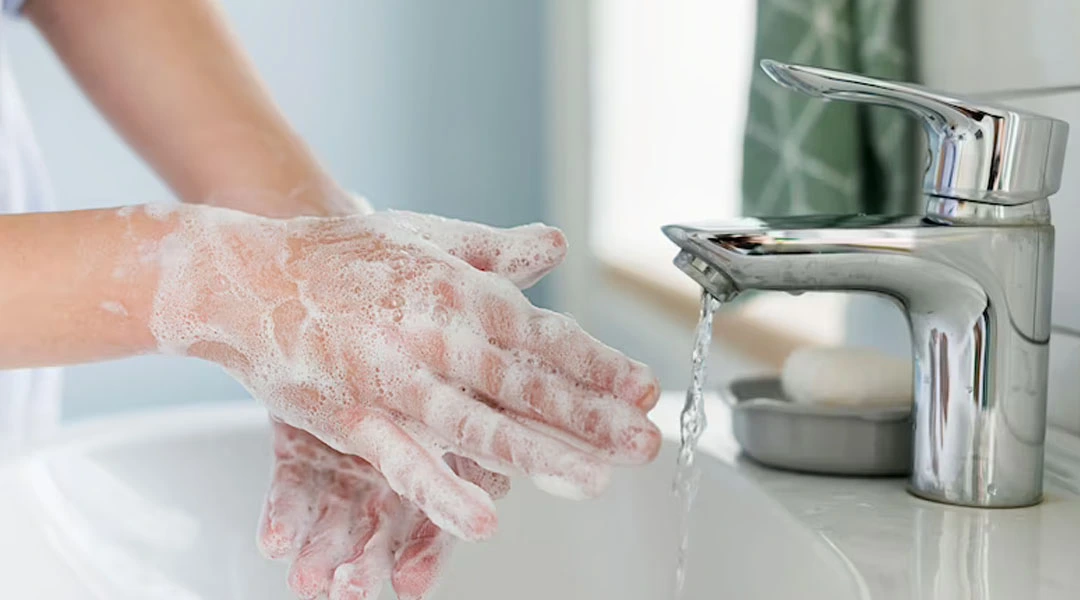Numerous illnesses are very infectious and easily transmitted from one person to another. Hand washing is a quick and easy process that shields you against a variety of health issues, such as respiratory and gastrointestinal diseases, including corona virus infection. Yash Birla believes that following personal hygiene is one of the most important things for your body and hand washing is the first step towards it.
World Hand Hygiene Day
In addition to eradicating germs on your hands, hand washing also stops them from spreading. The World Health Organisation observes World Hand Hygiene Day on May 5. This day discusses why it’s important to regularly wash your hands and why it’s the best approach to stop the transmission of germs.
How do Germs Spread?
Microscopic living things that can spread disease are known as germs. Examples of germs include fungi, viruses, and bacteria. Before understanding how to wash your hands correctly, it’s necessary to comprehend how germs are distributed. The following details the timing of the spread of various germs:
- You regularly use dirty, unsanitary hands to touch your face or lips.
- You shouldn’t prepare or consume food without washing your hands beforehand.
- Touch infected objects. Never wash your hands after coughing, sneezing, or blowing your nose.
How often should you wash your hands?
Everyday tasks that we participate in need both indoor and outdoor labour. We have a propensity to acquire a wide variety of bacteria throughout time. You can’t always keep your hands sanitised. But if you wash your hands properly and at the appropriate times, you can help prevent illness. You must make sure to wash your hands both before and after the activities listed below.
- Getting your food ready
- Any public contact with things like handrails, doorknobs, etc.
- Taking care of open wounds and cuts
- Helping sick people
- Putting on or taking off contact lenses
- Changing the child’s diapers.
- Taking care of your pet’s food
- Using the toilet
- Playing with or patting pets or stray animals.
- Smoking
- Managing waste materials
- Getting home from the street
- Taking public transportation
- Going to the bank and handling cash or receipts
- Returning from a hospital, a lab, or another healthcare facility
Hand washing and its Effect on Your Health
- Decreases the number of individuals who acquire a diarrheal illness by 23% to 40%.
- 60% less infection occurs in those with compromised immune systems.
- Reduces respiratory disease occurrence by 10–20%
- Lessens the likelihood of gastrointestinal illness-related student absences by 30–60%.
Tips to wash your hands the right way
- Instead of using stagnant water to moisten your hands, use rushing water.
- Gently rub soap with alcohol between your hands.
- Circularly rub your hands together in your palms.
- Fingers should be interlaced and moved back and forth.
- Fingernails and palms should be rubbed together.
- Clasp your fingers one at a time with the opposing arm.
- Remember to also apply the soap on your wrists.
- Rinse your hands under running water that is clean.
- Use a dry cloth or piece of tissue paper instead of immediately touching the tap.
- Use a towel or piece of tissue paper to dry your hands.
Since hand washing with soap and water is more effective than using hand sanitisers, hand washing should always be done. However, in the lack of flowing water, hand sanitisers may be used to routinely wash your hands and eliminate germs.
Hand washing among children
- Every kid has to establish the habit of washing their hands. You can make this hand washing activity enjoyable in your role as a parent, carer, or educator.
- Make children sing a song while washing their hands. If the song is too short, have them perform it twice.
- To prevent children from finding the practice dull, you may also create amusing rhyming sentences about the advantages of hand washing.
- Using humorous soaps with cartoon figures or characters will motivate kids to wash their hands. Children who effectively wash their hands might also receive praise.
The Importance of Hand Washing for Disease Prevention
We don’t really understand the value of hand washing until trying times, like a pandemic. Its benefits, however, are not just for the covid epidemic. By following the right hand washing procedures, many illnesses can be prevented. Additionally, if taught early on, washing your hands might become a habit rather than a practice. Yash Birla travels a lot for business and leisure purposes and makes sure that he practices hand washing every now and then for disease prevention.
By keeping yourself healthy and free from illnesses, you may avoid respiratory and gastrointestinal infections as well as infectious diseases. All it takes is washing your hands.








Leave A Comment